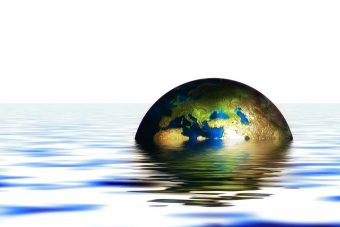
Most people understand that melting ice will mean rising seas, but when scientists look closely, they’re finding the reality is more complex. In many places, local observations and measurements contradict global trends.
Sönke Dangendorf, a scientist at the University of Siegen in Germany, published a study explaining sea-level rise over the last century. His conclusion: seas levels are not only rising, they’re rising faster than anyone expected.
The study combined GPS measurements with historic observations. It is the first study to use such a large data set and the first to correct for factors like local changes in sea level and variations in how different scientists take measurements.
Sailors started tracking local sea level more than 200 years ago to determine when water levels were too low for a ship to safely enter a harbor. Gauges across the planet still help shipping, but they also help climate scientists tease apart local and global effects on sea level.
For example, North America and northern Europe were once weighed down by huge ice masses. When they melted, relieving the pressure, the Earth’s crust started moving up again.
“This means that sea level, relatively, is falling at these locations,” Dangendorf explained. Meanwhile, in Jakarta, Indonesia, the land is moving down by 14 millimeters per year, “just due to groundwater depletion”, he added, meaning sea level there is rising locally.
The rate of global sea-level rise is now more than 3 millimeters per year, according to the study, while rise was only 1.1 millimeters before 1990 when GPS satellite measurements began, a lower number than every other published reconstruction.
“That means that the acceleration in sea-level rise is much larger than previously thought, and this is quite important,” Dangendorf explained.
The acceleration appears to be a result of melting ice sheets. Scientists attribute the last century of sea-level rise to glaciers melting and the ocean expanding as it warms. However, the last 10 to 15 years of increased melting in Greenland and Antarctica have changed the equation.
“This leads to an acceleration in sea-level rise, and this is the more important factor in the long term,” Dangendorf said.
Source: cleantechnica.com


